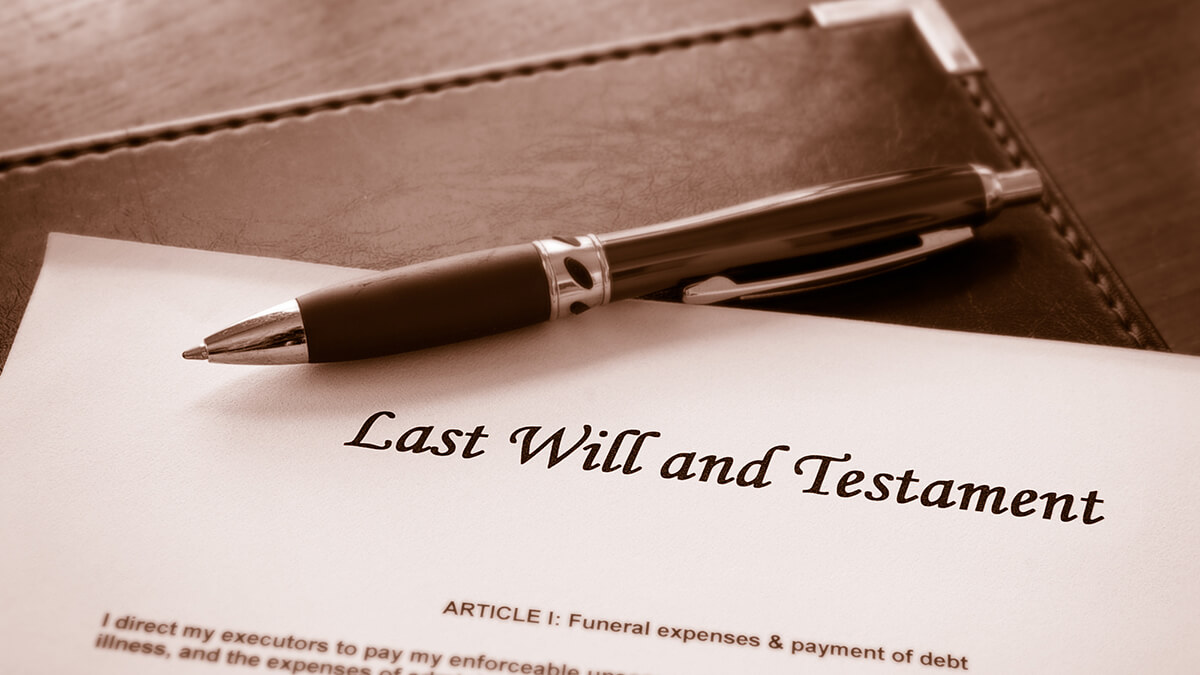When a loved one has passed, the executor of their will is likely to be dealing with both the emotional burden of loss and the legal implications of their new responsibilities. Understanding the executor’s role, limitations, and legal obligations is going to be crucial to carrying out the deceased’s wishes effectively and respectfully.
In this article, we’ll explore the nuances of being an executor, including what happens when the will cannot be executed properly, how beneficiaries are involved, and what happens when an executor cannot or is not willing to perform their duties.
If you’re managing the estate of a loved one who has passed and are looking for a simple way to sell their property quick, iBuyer.com can provide fair, all cash-offers. We can simplify the process of an already challenging transition.
What Can an Executor Do?
Compare Cash Offers from Top Home Buyers. Delivered by Your Local iBuyer Certified Specialist.
One Expert, Multiple Offers, No Obligation.
Can an executor override a beneficiary?
No, an executor cannot override a beneficiary. Their duty is to follow the will and act in the best interest of the estate. If changes are necessary, beneficiaries must come to an agreement with the executor and sign a deed of variation. All beneficiaries, including those who may lose inheritance, must agree to the change.
What is an executor of a will?
An executor of a will is the person responsible for carrying out the proceedings after death. They become the administrator of the last will and are in charge of taking care of the estate left behind. Essentially, this means that have the last say in decisions made and the responsibility to meet the wishes of the passed loved one.
While it seems like the executor of a will has a lot of power, they are bound by law to carry out their duties and there are legal limitations for their actions.
Who is the executor of a will?
The executor of a will is the person named responsible by the passed loved one, or testator. Generally, that person would be aware of that decision before the death occurs, but in sudden cases, they would find out during the reading of the will.
It is common for a spouse or elder child to be the executor of a will. Lawyers will generally advise that a responsible and financially stable child be the executor to make sure they have the ability to carry out their duties in a timely and effective manner.
It is not only possible but common for an executor to also be a beneficiary in the will. This perceived conflict of interest can sometimes cause disputes, but it is very important to carry out the requests of the passed loved one exactly.
The executor of a will’s duties?
If you are the executor of a will, it can be overwhelming to understand all of your responsibilities. Your duties do not stop at reading the will but range from finances to planning the next steps.
As the executor of a will, you must:
- Find the will
- Hire a lawyer to start the process
- Protect the assets of the estate
- Review the will
- Communicate with beneficiaries
- Distribute assets to beneficiaries
- Continue paying bills and handling debts of the estate
- Representing the will in court if needed
- File paperwork to close estate
Essentially, the executor of a will must follow the wishes listed in the last will and make decisions in circumstances where the testator was not clear.
When should a will be changed?
Commonly, testators write their last will and testaments quite a bit before they die and have not updated them to reflect present circumstances. There are many situations in which the will cannot be followed exactly as is, so the executor and beneficiaries must work together to make these changes.
Some common reasons why a will must be changed are:
- Listed assets no longer belong to the estate
- A beneficiary has died
- Some debts diminish the inheritance
- There are wishes listed, but they’re unclear
Often, it is clear when a will cannot be carried out as-is, and the executor will have to consult with the beneficiaries and follow the law to change the will. When it comes to disagreements among the beneficiaries, the executor will have the final say.
It is very important to seek legal counsel before you make decisions that deviate from the will. A lawyer will help you determine if the changes you are making are legal and in good faith. This step will protect you from going to court and facing penalties.
What can’t an executor do?
While the executor of the will has a lot of power and responsibility, certain things aren’t allowed by law. These policies keep a balance of power among the executors and beneficiaries and protect the wishes of the testators.
There are four main things an executor cannot do:
- Sign the will on behalf of the testator if it has gone unsigned
- Attempt to administer inheritance before the testator has passed
- Change the beneficiaries listed in the will
- Stop beneficiaries from contesting items in the will
The beneficiaries can ask the court to get involved in cases where the executor is not fulfilling duties properly. The court will need to examine the will and the actions of the executor to determine fault.
In some cases, beneficiaries are unhappy with the will or have disputes and want to remove the executor. It is the court’s responsibility to protect the executor in those cases. If the executor has been acting in good faith with the good of the estate in mind, then they will be protected.
What happens if you refuse?
Not all executors are happy to take charge after the loss of a loved one. It’s important to remember that they chose you for a reason, but if you really cannot fulfill your responsibilities, what do you do?
You are allowed to refuse the role of executor if you wish. Often, the testator will name a backup executor. In that case, the second choice will take over the executor’s responsibilities.
If there is no backup executor, then the last will will have to go to court. The court will be able to appoint a person to be a personal administrator or estate administrator.
This new administrator will take on all of the responsibilities that you would have had as an executor.
What if the executor is not available?
If you came to this article because you cannot find the executor or the executor has also passed, then you must be wondering what about the next steps. In all cases of an unavailable executor, the local probate court will need to handle it.
The court will appoint someone different to be the executor and provide letters testamentary, which gives the new executor their responsibilities.
There are also cases where the named executor cannot fulfill their role. The court may remove someone from the role of executor if show they have a conflict of interest, are incapacitated, or they are a felon.
What happens in the absence of beneficiaries?
If an executor cannot locate a beneficiary, there is a rigorous process to convince the court that they are unreachable. No other actions can happen until the executor has proven that they tried the following:
- Attempted to reach the beneficiary at all known means of contact, including mailing address
- Attempted to contact known living relatives including parents, siblings, spouses
- Attempted to reach all previous employers
- Spoke with members of the community
If the executor can show documentation that they have attempted all of the above, they should bring it to the court for evaluation. If the executor and the court representatives fail to reach the beneficiary after a set period of time, they will treat the beneficiary as if they are dead.
Any inheritance that the testator assigned to them in the will then becomes the inheritance of the other beneficiaries.
Sell the estate with ease
Can an executor change a will? Now you know that it’s possible, but only with the agreement of the law and other beneficiaries.
The next step is often to sell the home left behind. It is your responsibility to sell the home for a price that benefits the estate. iBuyer.com helps you put the house on the market as-is, no repairs or open houses required.
iBuyer.com will match you to cash buyers so you can take care of your other responsibilities. Enter the home address today to find your perfect buyer.
Instant Valuation, Confidential Deals with a Certified iBuyer.com Specialist.
Sell Smart, Sell Fast, Get Sold. No Obligations.
Reilly Dzurick is a seasoned real estate agent at Get Land Florida, bringing over six years of industry experience to the vibrant Vero Beach market. She is known for her deep understanding of local real estate trends and her dedication to helping clients find their dream properties. Reilly’s journey in real estate is complemented by her academic background in Public Relations, Advertising, and Applied Communication from the University of North Florida.




